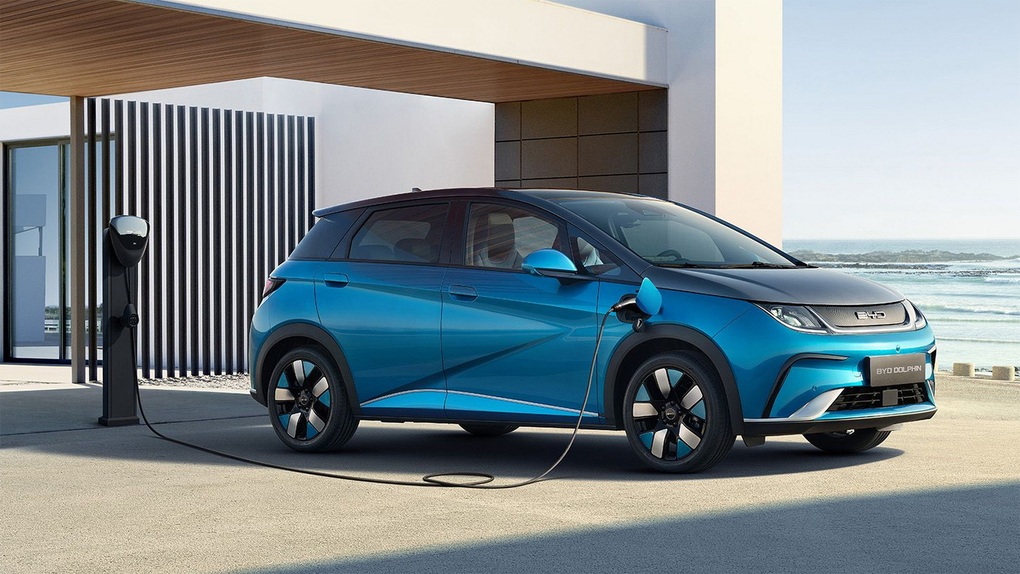
Shortly after the European Union (EU) announced that it would increase the variable tax rate to 38.1% for electric cars produced by China, leaders from both sides exchanged phone calls over the weekend and agreed that further discussions on the tax rates are necessary.
The EU believes that Chinese electric cars are unfairly subsidized by the government, while China accuses the EU of pursuing protectionism and violating trade rules.

On June 12, the European Commission announced the results of an investigation showing that Chinese pure electric cars, along with the supply chain, were unfairly competitively subsidized (Illustrative photo: BYD).
EU Trade Commissioner Valdis Dombrovskis stated that he had spoken with his Chinese counterpart - Wang Wentao - about the tax rates and would "continue to engage in discussions at all levels in the coming weeks."
Wang also met with German Deputy Prime Minister and Minister of Economics and Climate Robert Habeck on June 22.
The Chinese Ministry of Commerce threatened to sue the World Trade Organization (WTO) to safeguard its legitimate rights and interests, and in a Facebook post, stated that Wang Wentao clearly opposed the new tax rates while speaking with Habeck.
Germany has voiced opposition to the additional taxes on Chinese electric cars. Stellantis also opposed the move.
"Habeck said that both Germany and China are advocates of and benefit from globalization," the Chinese Ministry of Commerce said in a Facebook post.
"The current global situation is very complex and chaotic, with increasing trade protectionism. Deep concerns about the EU's anti-subsidy investigation into Chinese electric cars, the German government believes that this will have a negative impact on the green transition and the interests of European consumers, while worrying that the interests of German car manufacturers in China may be compromised.
In the current situation, using tariff barriers is the worst approach, as it will create a vicious circle escalating trade conflicts.
Germany agrees with China's proposal to address the issue through dialogue and will raise this issue with the European Commission (EC). It is hoped that the two sides will find a feasible solution through consultation and negotiation with a constructive approach," the Chinese Ministry of Commerce said.
In response to the EU's decision to increase taxes on Chinese electric cars, Chinese car manufacturers have proposed that the government take retaliatory measures, imposing a 25% tax on large-displacement internal combustion engine cars imported from Europe.
Hãy là người đầu tiên bình luận!
Bình luận: